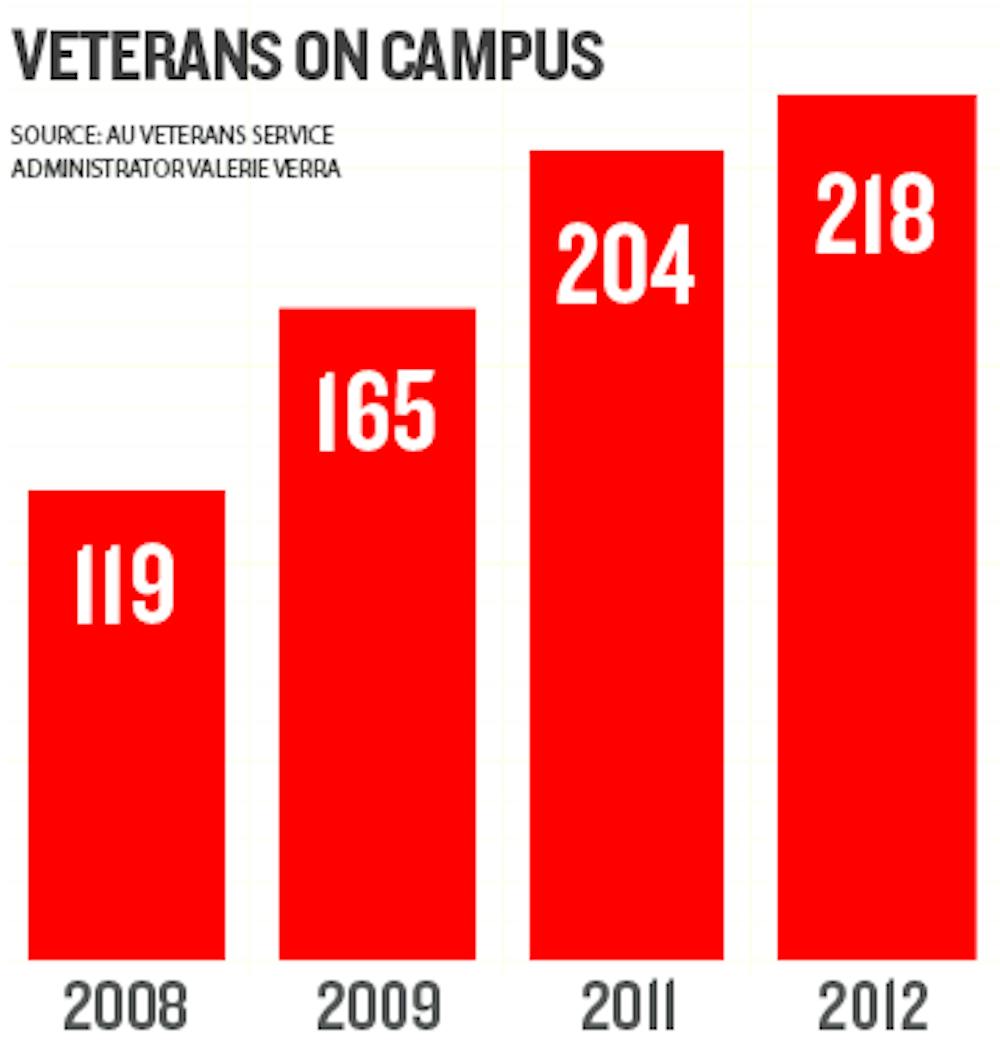Veterans at AU are experiencing delayed GI Bill payments due to a surge of returning soldiers from Afghanistan and Iraq.
This has been a problem since the Post-9/11 GI Bill was implemented in 2009, said veteran John Kamin, School of Public Affairs ‘12. The GI Bill gives veterans the financial resources to pay for college, according to the GI Bill website.
“It’s not specifically a problem at AU; it’s at every school, profit or non-profit,” Kamin said.
These payments are crucial to AU veterans because the cost of living in D.C. is higher than most cities, Kamin said. In addition, many veterans live off campus and have families they care for, he said.
“I have received numerous complaints from veterans about not having received their benefits,” AU Vets President Andrew Reef, a graduate student in SPA, said. “The issue is that over the next few years, as soldiers are returning home from Afghanistan and the military has trimmed its forces, there will be an even greater influx of veterans on campuses nationwide.”
Since 2004, more veterans have returned home and used educational benefits, with 800,000 beneficiaries in 2010, according to the National Center for Veterans Analysis and Statistics’ website.
The University is working with U.S. Veterans Affairs to get AU students their G.I. Bill payments, Verra said.
“The mid-Atlantic region has the greatest number of colleges and universities and therefore has the biggest burden when it comes to processing these certifications,” she said in an email.
AU created the Veteran Liaison Network in 2011 to discuss policies to prepare for the influx of veteran attendance, The Eagle previously reported. This network contains members of AU Vets as well as members of AU’s faculty and administration.
Some states such as Minnesota and Arizona allow veterans to defer or extend the deadline of tuition payments if the VA system misses a payment, Reef said.
“It’s our hope that we can adjust policies now to best prepare for the future,” Reef said.
news@theeagleonline.com





